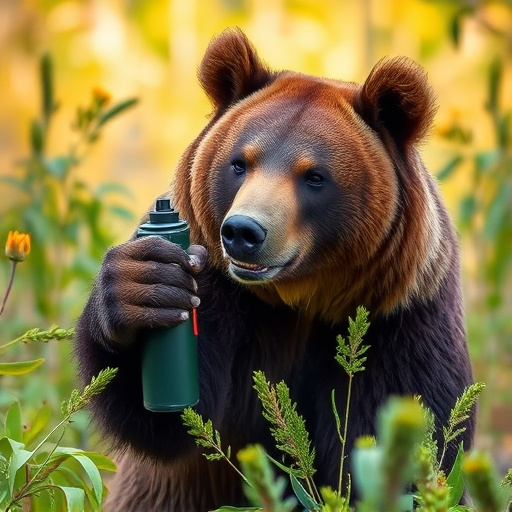Bear spray offers higher capsaicin concentrations and long-range effectiveness compared to regular pepper spray, ideal for deterring bears. Its success depends on factors like concentration, wind, distance, and environmental conditions. Against aggressive bears, bear spray's severe irritation encourages retreat, making it more effective than pepper spray for safe wildlife encounters.
“Wildlife encounters, especially with bears, can be thrilling yet potentially dangerous. Enter bear spray—a popular defense mechanism for outdoor enthusiasts. This article unravels the effectiveness of bear spray, delving into how its power is influenced by various factors. We explore when pepper spray proves more superior in such situations, offering insights to ensure your safety during encounters. By understanding these nuances, you can make informed decisions while navigating wild landscapes.”
- Understanding Bear Spray Effectiveness
- Factors Influencing Spray Power
- When Is Pepper Spray More Effective?
Understanding Bear Spray Effectiveness
Bear spray, also known as bear repellent, is a popular tool for wildlife encounter protection, especially in areas inhabited by bears. When it comes to understanding its effectiveness, it’s essential to dispel myths and misconceptions. Many wonder if bear spray is stronger than pepper spray used for self-defense against humans; however, the comparison isn’t straightforward. Bear spray contains capsaicin, similar to pepper spray, but in higher concentrations tailored for deterring bears.
Studies show that bear spray is highly effective when used correctly, creating a barrier of irritated eyes and nostrils, causing bears to retreat. Its strength lies not just in its chemical composition but also in the specific design of the aerosol can, which allows for a wide misting range and fast deployment. Unlike pepper spray, which primarily affects vision and breathing in close quarters, bear spray is designed for long-range applications, making it ideal for unexpected encounters at a distance.
Factors Influencing Spray Power
The effectiveness and power of bear spray, or more specifically, its ability to deter aggressive bears, can be influenced by several factors. One key consideration is the type of pepper used in the spray formulation—a common comparison being whether bear spray is stronger than regular pepper spray. While both contain capsaicin, the primary active ingredient responsible for the burning sensation, bear spray typically has a higher concentration due to the unique challenges of dealing with larger, more powerful bears like grizzly and black bears.
Additionally, factors such as wind speed and direction can significantly impact the spray’s range and coverage. A windy environment may cause the spray to dissipate faster or blow back towards the user, reducing its overall effectiveness. Conversely, calm conditions allow for a more focused and prolonged stream of peppery solution, ensuring better protection. The distance at which the spray is deployed is also critical; closer encounters may require less powerful sprays to be effective, while bears at a farther range might necessitate stronger formulations.
When Is Pepper Spray More Effective?
In certain scenarios, bear spray can be a more effective solution than traditional pepper spray. While pepper spray is designed to cause temporary blindness and disorientation in humans, its potency may vary against larger animals like bears. Bear spray, specifically formulated for wildlife encounters, typically contains capsaicin at higher concentrations, making it stronger than standard pepper spray. This increased strength allows bear spray to create a defensive barrier by irritating the bear’s eyes, nose, and respiratory system, encouraging the animal to retreat rather than attack.
The effectiveness of bear spray lies in its quick-acting nature and direct application. When used correctly at close range, it can deter aggressive bears effectively. In contrast, pepper spray may not always be as impactful against a charging bear due to its design purpose for human self-defense. Therefore, understanding the context and choosing the appropriate spray based on the potential threat is key to ensuring safety during wildlife encounters.
In conclusion, understanding the effectiveness of bear spray and its power under various conditions is crucial for those venturing into bear country. While pepper spray can be more effective in certain scenarios, traditional bear spray remains a reliable tool for deterring aggressive bears. Remember that proper usage and awareness are key to ensuring safety during wildlife encounters.
